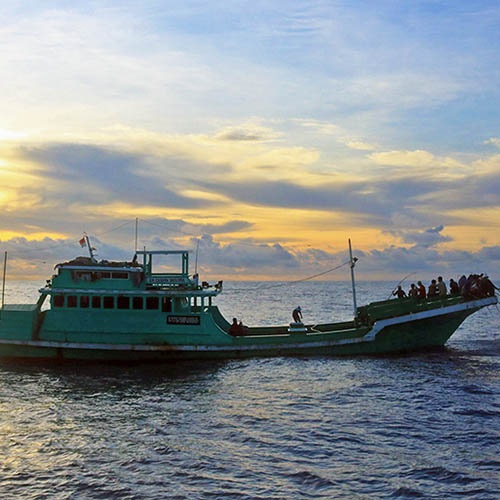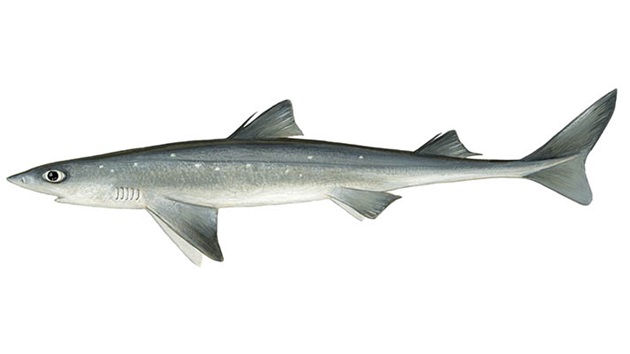Shark finning is the cruel practice of removing any of the fins of a shark (including the tail) and discarding the remainder of the shark at sea. Shark finning is a wasteful and abhorrent practice that is strictly prohibited within MSC certified fisheries.
The MSC Fisheries Standard requires certification bodies to assess the likelihood that any vessel in a fishery is engaged in shark finning. This is part of the scoring for both Principle 1 (sustainable stocks) and Principle 2 (minimising environmental impact).
How has our Standard changed?
The new version of the MSC Fisheries Standard includes strengthened requirements and guidance relating to shark finning.
The new requirements will increase confidence that shark finning does not take place on MSC certified fishing trips by requiring that any fishery that retains sharks, without exception, has a Fins Naturally Attached (FNA) policy in place and the policy is enforced.
The inclusion of FNA as a mandatory policy for retained sharks follows an extensive review of the best practices already in place within fisheries to prevent shark finning.
Our new shark finning requirements also clarify our definition of a shark, which has been extended to cover all species most vulnerable to shark finning.
Fins Naturally Attached is the only acceptable policy
An FNA policy will now be mandatory for all fisheries that retain sharks. This policy will be required for fisheries to achieve the minimum acceptable score (SG60) for certification, with SG60 the only level under which shark finning will be scored. This means that assessors must now consider whether there is a high degree of certainty that shark finning is not taking place in a fishery as a minimum for certification. The adoption of FNA as the only acceptable policy for fisheries that retain sharks will also simplify assessments and ensure fisheries can be audited more easily.
The MSC defines ‘Fins Naturally Attached’ as a policy that requires all retained sharks to be landed with their fins still attached to the carcass by prohibiting the removal of shark fins on board vessels as well as the prohibition of retaining onboard, transhipping or landing removed shark fins. The policy is the most effective, acceptable and feasible way to address shark finning and ensures it does not occur in MSC certified fisheries.
Stronger evidence requirements to verify policies are working
Our new evidence requirements framework will provide greater confidence that an FNA policy is being applied. Assessors will be required to apply the Evidence Requirements Framework to evaluate the accuracy of information used to score a fishery against the shark finning requirements. This will provide increased confidence in that an FNA policy is in place.
As part of this process, assessors must consider all evidence to confirm an FNA policy is in place and being implemented. They will assess the quality of evidence that shows the policy is widely adopted in the fishery and is being properly enforced. This includes consideration of the surveillance methods used to detect shark finning on or around a vessel, whether during the catch operation, during processing on-board or during transhipment.
The evidence requirements framework will also be applied in cases where fisheries operate under non-retention policies (where management requires that sharks are released whole if captured). In such cases, assessors will also be applying the new evidence requirement framework, to ensure that non-retention policies are properly adopted and enforced with the same rigour as an FNA policy.
Read more about our new evidence requirements.
Default shark definition scored under ‘shark finning’
We have developed a new default definition of a ‘shark’ in our Standard requirements, with respect to shark finning. Where shark finning is scored, the new Standard requirements define sharks as selachimorpha (true sharks) and rhinopristiformes (e.g. shovel nose rays, guitar fishes).
Impact testing showed that the proposed default definition applied to 95% of species and 99% of the volume of fins identified in a study of the shark fin market in the global trade hotspot of Hong Kong. Skates and stingrays are not included in this default definition, as evidence indicates that these groups of species are not highly threatened by the shark fin trade.
Our default definition will apply for all assessments and exceeds the majority of global management jurisdictions.
However, if the fishery operates within a jurisdiction that defines additional species such as skates or chimaeras, the assessment must consider those additional species.
While the default definition, detailed above, applies where shark finning is scored, elsewhere in the Standard additional species must be considered. For example, with respect to the designation of species as endangered, threatened or protected (ETP), assessments will need to consider all Chondrichthyan species.
Making sure ETP species of sharks are not being finned
Shark finning will still be assessed under both Principle 1 and Principle 2 of the Fisheries Standard, as well as being in our scope criteria. Under the new requirements proposed, shark finning will now also be scored within the ETP species requirements in Principle 2. Find out more about our new ETP requirements.
Fisheries Standard 3.0 implementation
Developing our Standard
In 2022, we published Version 3.0 of the MSC Fisheries Standard following the most comprehensive review to date.The development of the Standard follows public consultation on key aspects of the review, including a 60-day public review of the draft Standard and all associated documents.
We also commissioned independent research and carried out data analysis and impact assessments to determine whether proposals are feasible and deliver our stated intentions. We also sought advice and input from our governance bodies throughout the process.
Follow the links below to find out more about the different inputs which contributed to the development of our requirements to further ensure shark finning does not take place in MSC certified fisheries:
• MSC Fisheries Standard - Impact Assessment Report - Identifying further solutions to ensure MSC certified fisheries are not involved in shark finning (Nov 2021)
• MSC Fisheries Standard – Impact Assessment Report – Identifying further solutions to ensure MSC certified fisheries are not involved in shark finning (January 2021)
• Review of Best Practice in the Prevention of Shark Finning (Brautigam A, 2020)
• Consultation summary report – Proposed revised MSC Fisheries Standard (May 2022)
• Consultation Summary Report – Preventing shark finning (June 2021)
• Consultation Summary Report – Preventing shark finning (October 2020)

MSC Fisheries Standard version 3.0
An overview of the changes made to our Standard.

Fisheries Program Documents
The MSC Fisheries Standard and General Certification Requirements.

.tmb-labelhome.jpg?Status=Master&Culture=en&sfvrsn=39466bd9_3)
